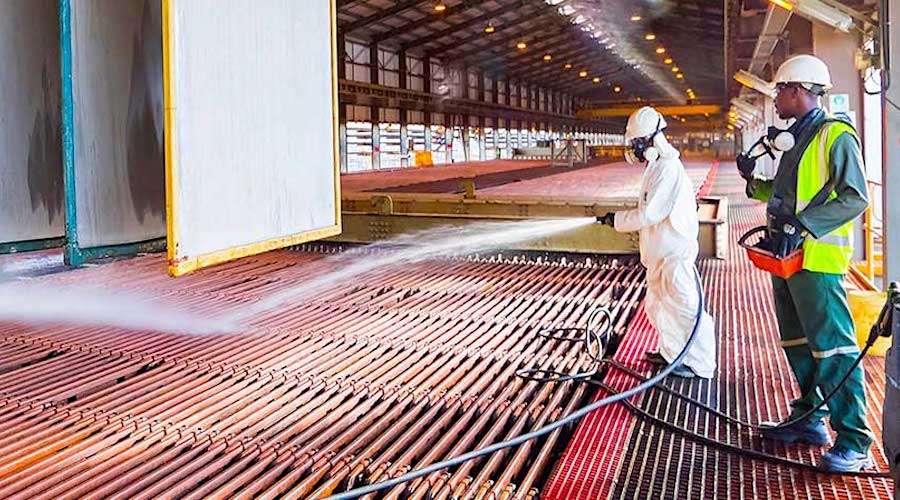In its main listing in Johannesburg, the new company also saw its shares collapse, but it recovered on Tuesday to close only 1.5% lower, at 2,350 South African rand.
The drop may have been driven by short-seller Boatman Capital Research’s comments ahead of the listing.
In a report posted on Sunday, Boatman said Thungela’s clean-up costs for the mines, which are all expected to close in the next decade, could be three times greater than the amounts currently disclosed to investors.
The firm also said that fresh liability rules in South Africa, due to come into place later this month, will significantly increase its closure costs.
“Given that Thungela’s mines have remaining lifespans of five to 11 years (assuming no extensions), this is now a pressing issue for the company and its shareholders,” the report said, setting an equity value of zero.
Before Thungela’s debut, Liberum analysts quoted by Reuters estimated the market capitalization of the miner at between $440 million to $950 million. At close on Monday, the miner was worth just $253 million.
“Institutional investors have been moving away from coal mining in recent years. Investors now require many funds to avoid polluting assets such as coal miners making it difficult to find large cornerstone investors,” analyst John Meyer of SP Angel said.
Anglo said in a statement in response to the Boatman report that the provision on Thungela’s balance sheet is “over and above the regulatory guidance applicable to miners in South Africa.”
“The basis for provisioning under the draft NEMA regulations simply does not accurately reflect the actual or likely sums needed to discharge such liabilities,” Anglo said. “It is precisely because the amount required to be provisioned under the draft NEMA regulations is considered to be artificial, and arbitrarily inflated, that the draft has remained under review since 2015.”
The demerger of Thungela comes at a time of significant gains in South African thermal coal prices, which have increased by 25% to $113 a tonne this year.
Thungela holds 90% of the thermal coal operations in South Africa, with the remaining 10% held collectively by an employee partnership plan and a community partnership plan
The miner has 137 million tonnes of reserves and 756 million tonnes in resources, along with seven operations — four open-pit and three underground. The overall book value of the assets are estimated in $1.25 billion.
Mounting pressure from investors, regulators and environmental organizations has pushed miners to either sell coal assets or to limit their exposure to the fossil fuel in recent years.
The world’s top miner, BHP (ASX, LON, NYSE: BHP), has also announced plans to exit thermal coal as part of its commitment to reduce emissions.
Rio Tinto (ASX, LON, NYSE: RIO), the world’s second-largest mining company, sold its last coal mine in 2018.
Anglo American has consistently been offloading coal operations since 2014. Together with announcing ts intention to spin off its South African unit last year, it made the decision to sell Cerrejón, its thermal coal subsidiary in Colombia.
Anglo, BHP and Rio’s decision leaves miner and commodities trader Glencore (LON: GLEN) as the last major company in the coal sector.
The Swiss firm does have an ambitious plan to reach net-zero emissions by 2050 through reducing its direct and indirect carbon footprint by 40% by 2035, compared to 2019 levels. Landau Collieries.




